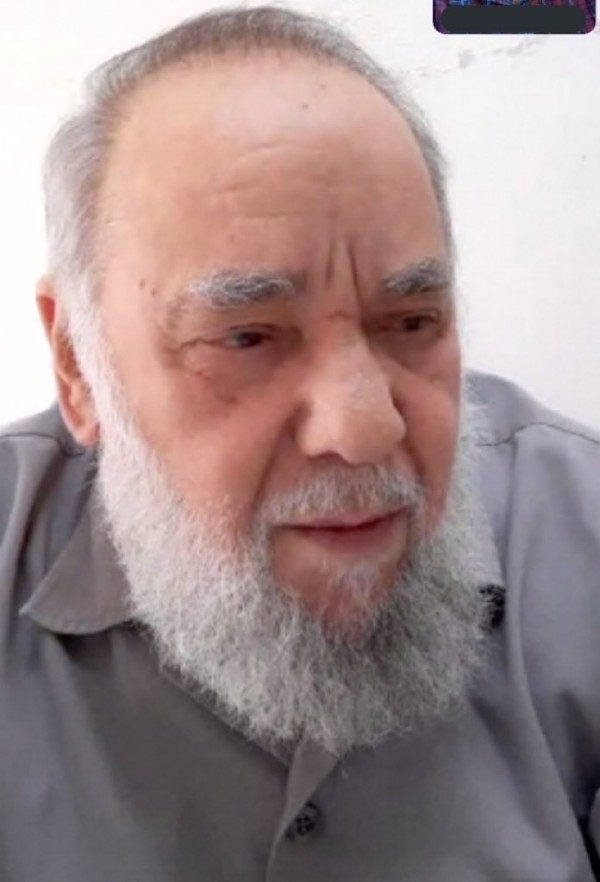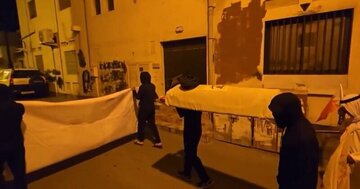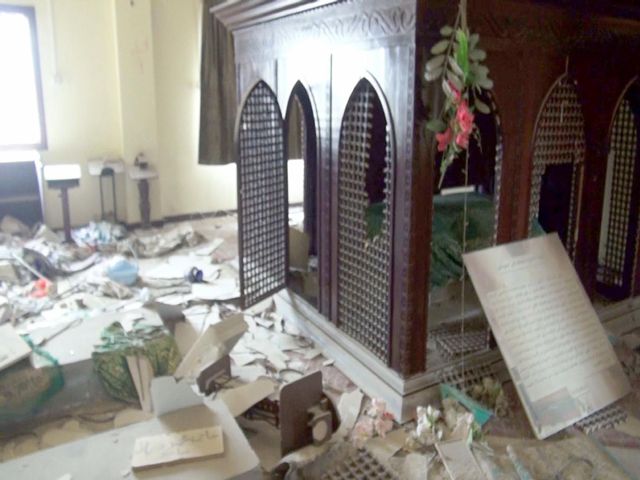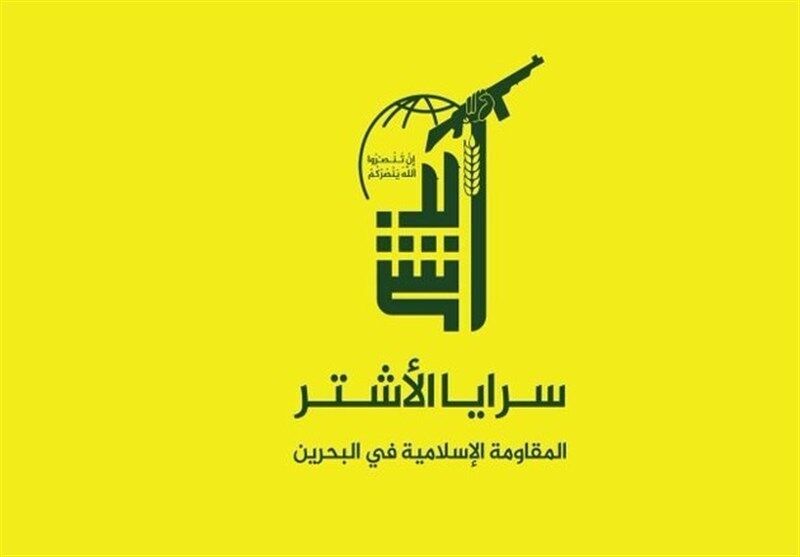(Ahlul Bayt News Agency) - The Media Center in Al-Wefaq National Islamic Society has launched on Saturday evening the Arabic version of its approximately one hour long documentary film on the excessive use of suffocating and toxic gasses by the regime forces against citizens.
The documentary includes stories of victims who died either when directly shot at with a gas grenade from close range or under asphyxiation from toxic gas grenades fired or thrown inside private homes.
In the film's launching, Al-Wefaq Secretary General, Sheikh Ali Salman, called on the Bahrainis in the speech he delivered at the event to focus more on media activity by documenting the violations committed by the regime.
Salman said, "We managed to win the media battle with the regime that has spent over 50 million Bahraini dinars on Public Relations companies to cover up the crimes it commits against the people of Bahrain and buy consciences in the media, but the truth always wins".
The Clouds of Death
The unfolding events in Bahrain reveal to every observer that the security crackdown has crossed all lines and gone far beyond rationality. As the security forces have been witnessed to respond to the ongoing peaceful protests and demonstrations with excessive use of gas in a collective punishment on all residents, resulting in tens of deaths so far. That is, added to the brutal home raids and street arrests, along with other measures that are far from meeting legal standards and security proficiency.
The Idea
This documentary aims to shed light on the suppressive methods that have turned non-lethal arms, used to disperse protests, to lethal ones, by not abiding by manufacturer's warnings which state very clearly that the misuse of these arms can cause severe injuries and damages, or even death. As mentioned in most warning labels on grenades used by Bahrain authorities in streets.
The documentary details the nature of the gas-grenade ingredients and the damages and illnesses they can cause, as well as the fatal injuries caused by the deliberate misuse of such arms, as the forces have repeatedly aimed these arms directly at persons.
Below is a detailed description of the film;
The film includes interviews and stories of six victims, and which are all taken on ground in Bahrain, as briefed below:
1- The death of the martyr Ali al-Sheikh (12 year old) who was directly targeted with a gas grenade at close range on Eid day. The documentary shows the injuries the boy sustains to the neck and face. It also includes interviews with both his parents, his father explaining the details of the incident on ground.
2- An interview with a brother of a disabled woman who died in her house from gas asphyxia with video footages of the security forces caught red-handed throwing gas canisters inside the old house.
3- The story of the martyr Sayed Jawad, a 35 year old who feared going to hospital after he had suffered from gas asphyxiation and septicemia. His mother tells how he spent the last hours of his life in hospital in an emotional interview.
4- The child martyr Sayed Hashim, who is a friend if the martyr Ali al-Sheikh and was murdered the same way.
5- An interview with the parents of, Zainab Haram, an infant who was only one month old when she was exposed to the regime forces' excessive use of gas in neighborhoods. The little one received medical treatment the same day Emergency law was declared in Bahrain and the Saudi forces entered Bahraini territory. Zainab lost eyesight and her medical report has been hidden. In this documentary, experts talk about how toxic gas can cause such damages.
6- The story of Bahrain's youngest martyr, Sajida, who died at the age of five days after her family's house and neighborhood were filled with gas by the regime forces. We were given video footages-from the mother- of the baby going through breathing difficulties.
The Documentary also includes comments of 11 experts from different countries, and they are as follows:
1- Professor Robert Douglas, Respiratory Physiologist and researcher --London
2- Dr. Peter Hall: Executive Director of Physicians for Human Rights- London
He has been working in the organization for 15 years. He talks about the types of gasses used and the human rights violations in Bahrain.
3- Dr. Goerge Fahila: Head of emergency department at Hammoud hospital --Lebanon
4- Srgabo Ganico: Retired police officer and expert in security affairs --Russia
He talks about the professional security methods and legal standards to disperse protests and how to deal with any riot acts.
5- Saultan Allam: British Police Officer since 1984 --London
He has been through intensive training in security and order maintenance. He has a good experience in handling protests and the necessary security measures that take place as the situation on ground develops, especially the use of gas.
6- Dr. Fadl Daher: Independent Security and Investigations Professional and General Secretary at Lebanese Center for the Rule of Law (LCRL)-Lebanon
7- Nadeem Houry: HRW Deputy Director of Middle East and North Africa --Lebanon
8- Prof. Taysir Hamiya: Chemical expert-Lebanon
9- Nabeel Rajab: Head of Bahrain Centre for Human Rights --Bahrain
He talks about the methods of the security forces, its disrespect for human rights and whether it acts in systematic or individual behavior.
10- Rola Al-Saffar: Head of Bahrain Nursing Society --Bahrain
She talks about the side effects civilians suffer and the different types of gasses used, in addition to the fear of visiting hospitals after they have been occupied by the military.
11- Dr. Taha al-Durazi: Consultant Neurosurgeon --Bahrain
We managed to find several types of unexploded gas grenades and canisters used by the Bahraini regime and film the mutilation of those grenades in Bahrain.
/129
18 March 2013 - 05:45
News ID: 400926
The Media Center in Al-Wefaq National Islamic Society has launched on Saturday evening the Arabic version of its approximately one hour long documentary film on the excessive use of suffocating and toxic gasses by the regime forces against citizens.








